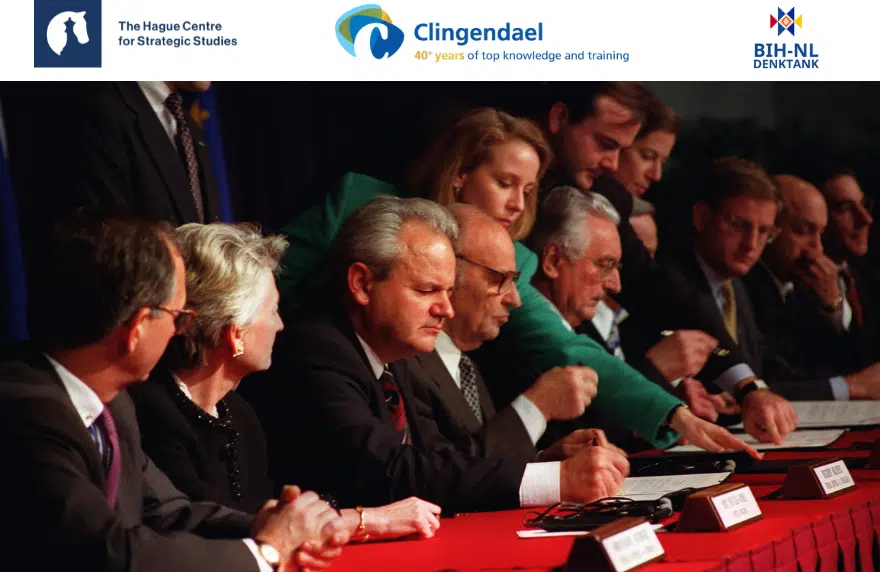To mark thirty years since the signing of the Dayton Peace Agreement, on November 21st, 2025, HCSS, the Clingendael Institute, and the BiH-NL Think Tank convened policymakers, scholars, diplomats, and civil society representatives to assess Dayton’s legacy and Bosnia’s prospects of moving from the “Dayton phase” to the “Brussels phase”. Discussions highlighted Dayton’s dual role as a peace settlement and a constitutional framework, the structural deadlock it created, rising geopolitical pressures, and the growing importance of civic engagement.
Across opening reflections by Alden Pervan and Šeila Akagić (BiH-NL Think Tank) and the Ambassador of Bosnia and Herzegovina to the Kingdom of the Netherlands, H.E. Almir Šahović, the Dayton Agreement was acknowledged for what it achieved: ending the war and creating baseline conditions for recovery and normalisation. Nevertheless, speakers noted that it was not designed as a permanent constitutional order. Its complex system of ethnic and entity vetoes, intended to safeguard peace, has instead entrenched ethnic divisions, paralysed decision-making, encouraged an exodus of young people, and enabled elites to block reforms essential for EU integration.
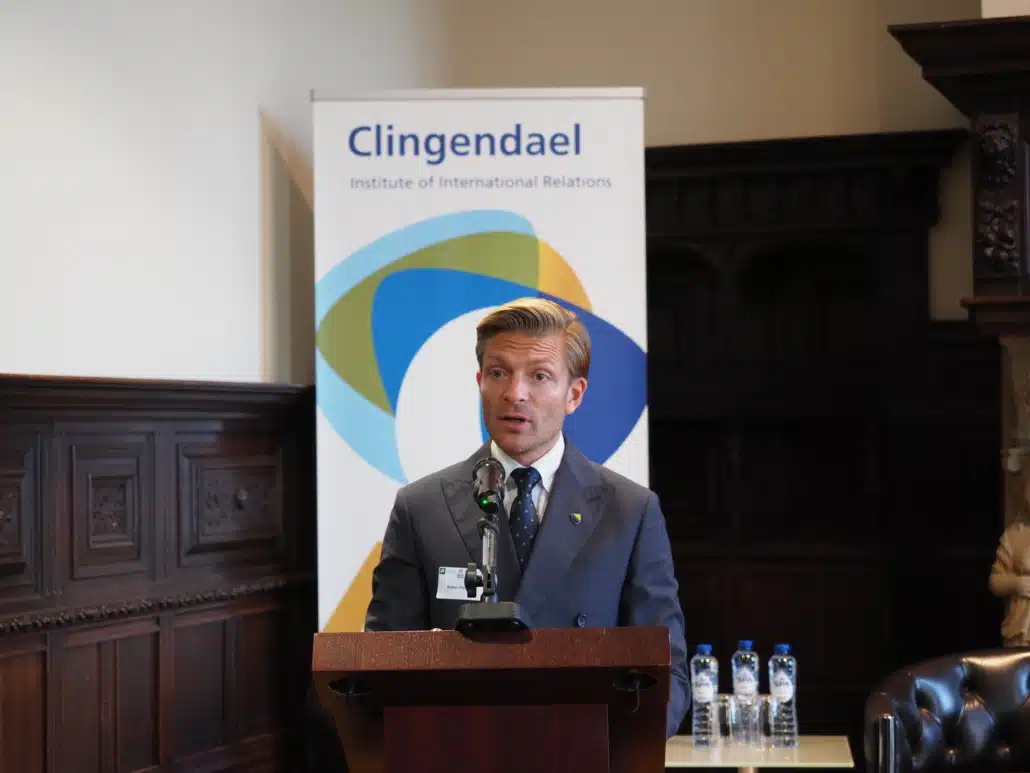
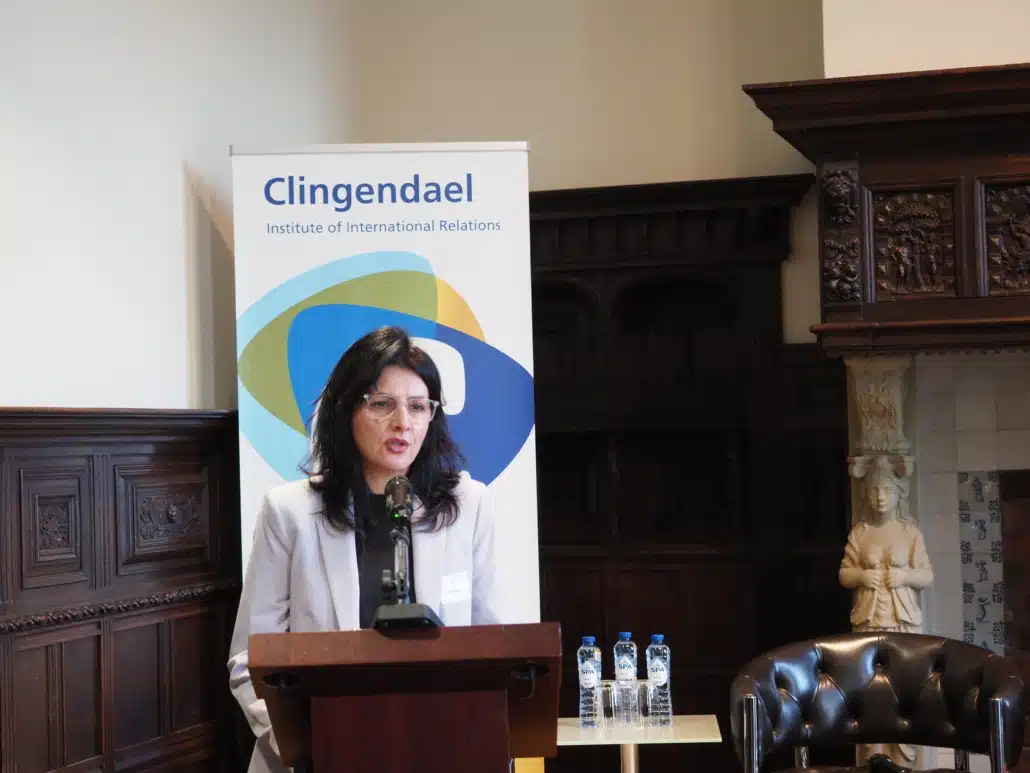
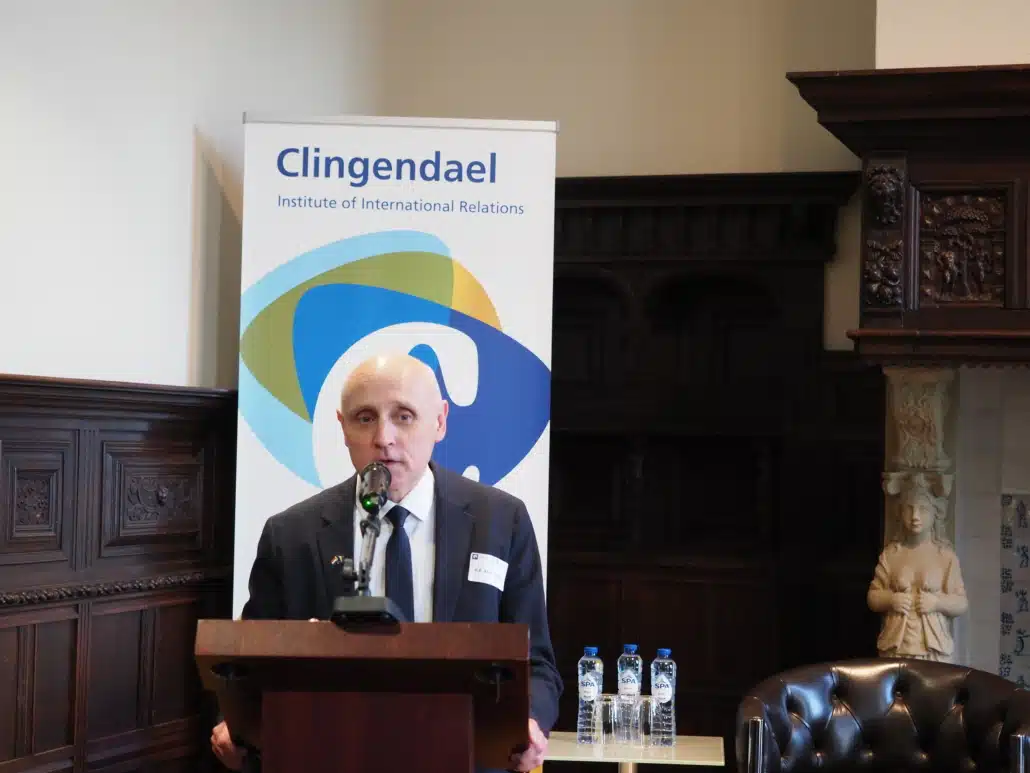
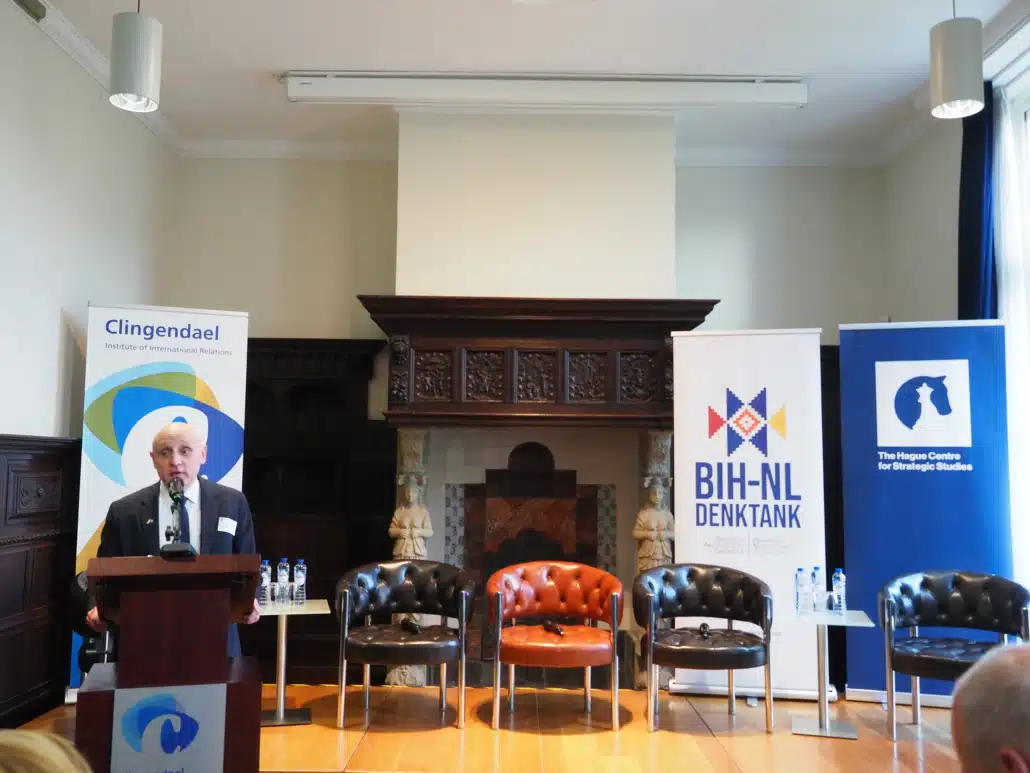
Panel 1: 30 years of peace, 30 years of deadlock? What has Dayton delivered, and what comes next?
Panel 1, moderated by Wouter Zweers (Clingendael Institute), gathered Jasmin Mujanović (New Lines Institute), Tineke Strik (Member of the European Parliament), Maja Sahadžić (Utrecht University), and Robert Gooren (Dutch Ministry of Defence), to reflect on Dayton’s long-term implications for Bosnia’s governance and security.
The panel emphasised that while Dayton succeeded as a peace agreement, it remains ill-suited as a sustainable constitution. Ethnically based political representation creates a democratic deficit that clashes with European human rights standards, as reflected in repeated cases before the European Court of Human Rights. Efforts at comprehensive reform have been rare and often unsuccessful, including the narrow failure of the 2006 April Package. Nonetheless, panellists noted that functional improvements are still possible through better coordination among state, entity, and local administrations.
Bosnia’s security environment was described as “stable but fragile”: there is no immediate military threat, but political instability and external interference, especially through disinformation and political support for destabilising actors pose risks. International military engagement has adapted over time, shifting from large post-Dayton deployments to a smaller but still significant EU presence that has grown again in response to regional developments. Panellists stressed that while international engagement remains important, domestic political commitment to reform is indispensable.
A recurring message was the growing disconnect between citizens, who prioritise practical needs, and political elites, whose incentives favour societal division. The EU’s approach has at times reinforced this dynamic by prioritising short-term stability over a consistent application of the conditionality mechanism. The panel stressed that the EU possesses significant leverage and should apply it more decisively: sanctioning destabilising actors, supporting rule-of-law advocates, and insisting on genuine reforms rather than formal or cosmetic compliance.
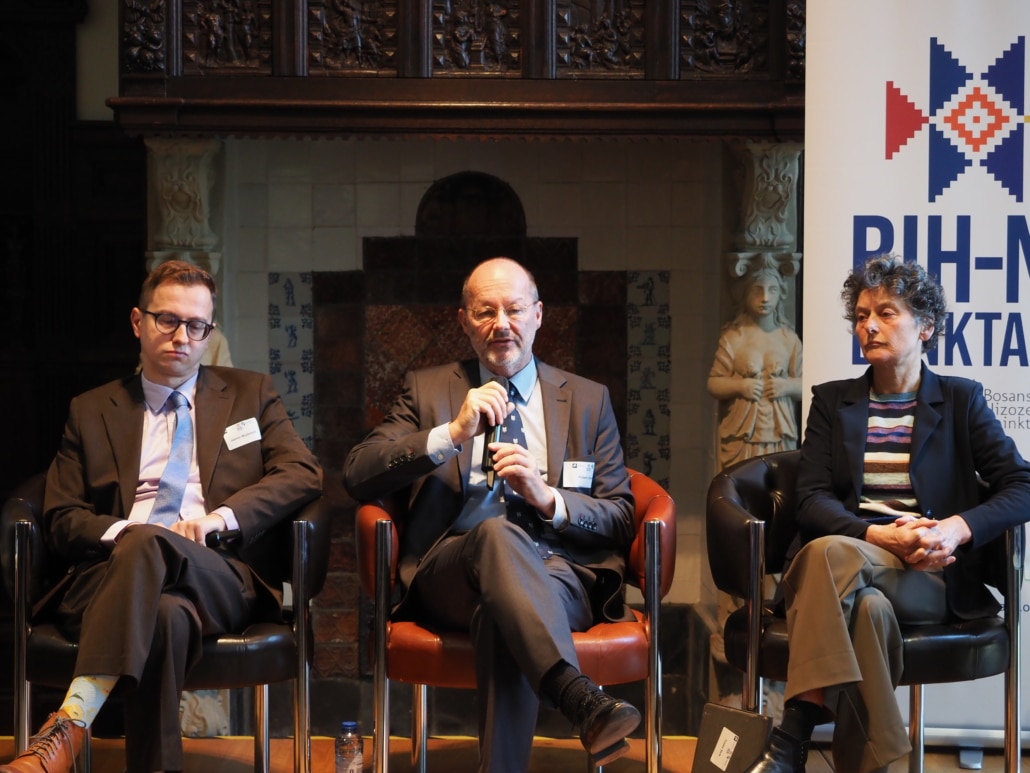
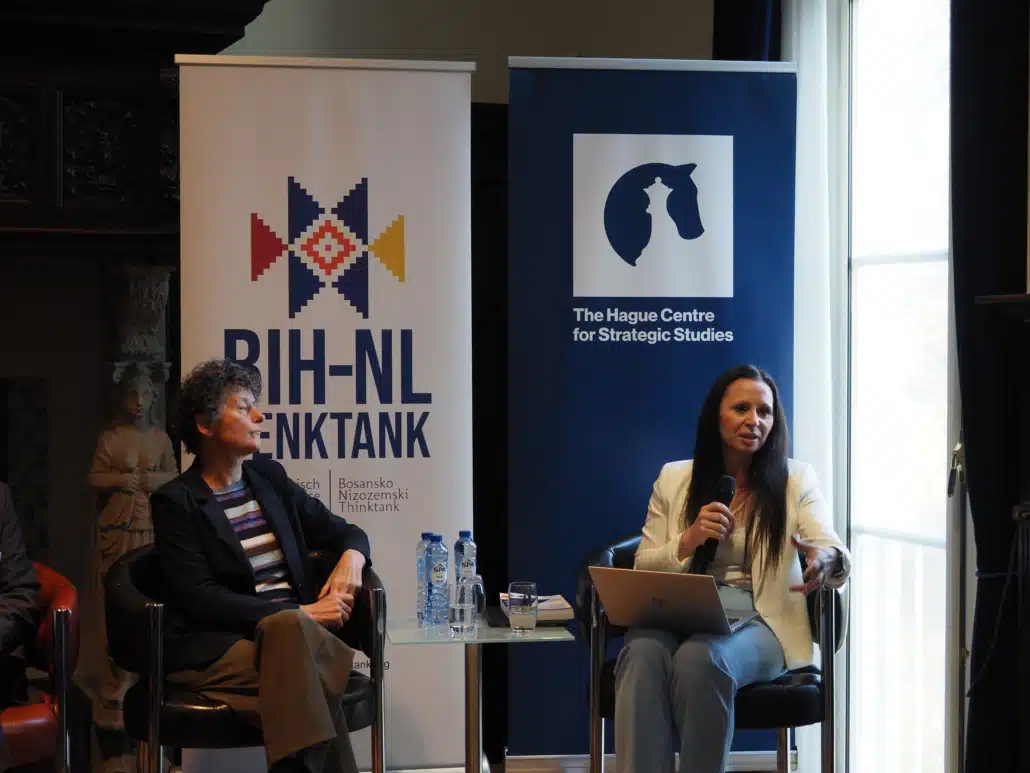
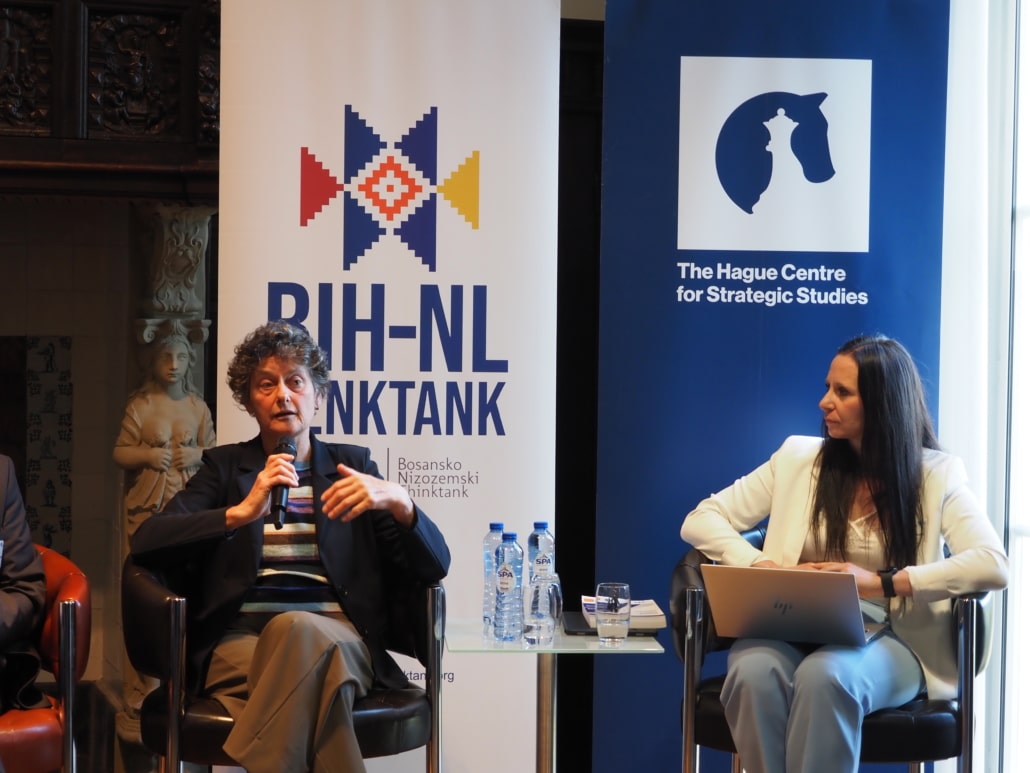
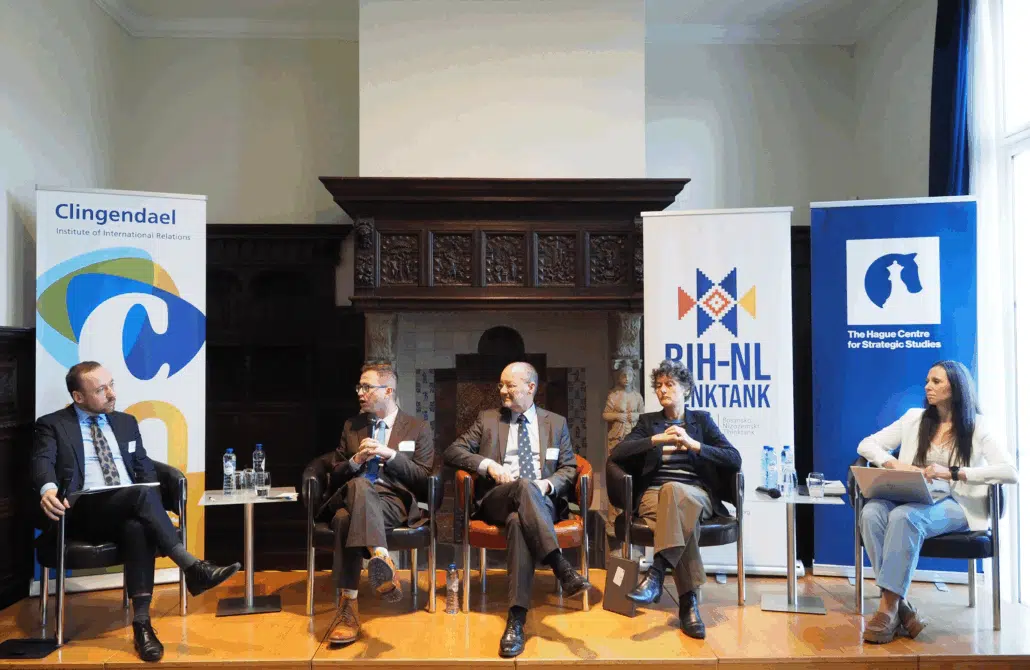
Panel 2: Democracy in Action: EU integration, the rule of law, and civic empowerment
Panel 2, moderated by Laura Jasper (HCSS) convened Srđan Blagovčanin (Transparency International BiH), Azra Berbić (ACT BiH), Sanja Ramić (BiH-NL Think Tank), and Marjolein Koster (independent journalist). This discussion shifted the focus from macro-level structures to grassroots activism, journalism, and the civic space, exploring how ordinary citizens seek to build democratic accountability.
Speakers highlighted pervasive state capture: political parties dominate institutions, public enterprises, and employment, undermining independent oversight and enabling persistent corruption. Elections remain weakened by outdated voter lists, political pressure, and partisan media environments. In parts of the country, especially Republika Srpska, restrictive laws modelled on authoritarian systems like Russia threaten civil society and free expression. Reduced international support, particularly following the wind-down of major US programmes (cf. USAID), has further narrowed the space for NGOs and journalists, removing an important source of protection for those challenging entrenched power.
Despite these pressures, the panel highlighted significant examples of civic resilience. Environmental movements, for instance, have successfully mobilised people across ethnic lines to demand transparency and influence local decision-making. Such grassroots cooperation fosters trust and solidarity, often doing more to bridge ethnic divides than high-level political dialogues. Investigative journalism plays a similarly crucial role. Cross-entity investigations, such as reports on illegal logging, have uncovered corruption and resulted in meaningful legal victories, despite political resistance.
Another key theme concerned the disconnect between EU rhetoric and citizens’ lived experience. Many citizens struggle to see how EU integration affects their daily lives, in part because EU messaging in Bosnia has been inconsistent, sometimes prioritising rule-of-law, at other times favouring political deals for stability. Speakers stressed that civil society expertise is essential for monitoring the adequate implementation of EU-related reforms, not merely the adoption of legislation, and pointed to a need for clearer communication on how reforms translate into tangible societal improvements.
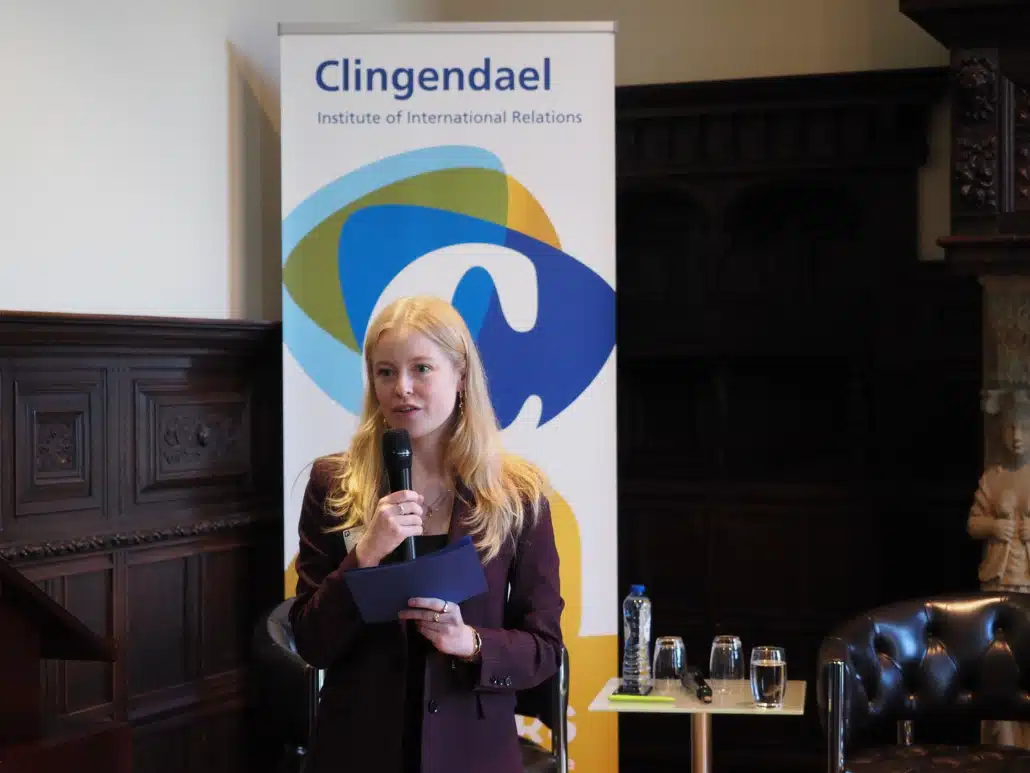
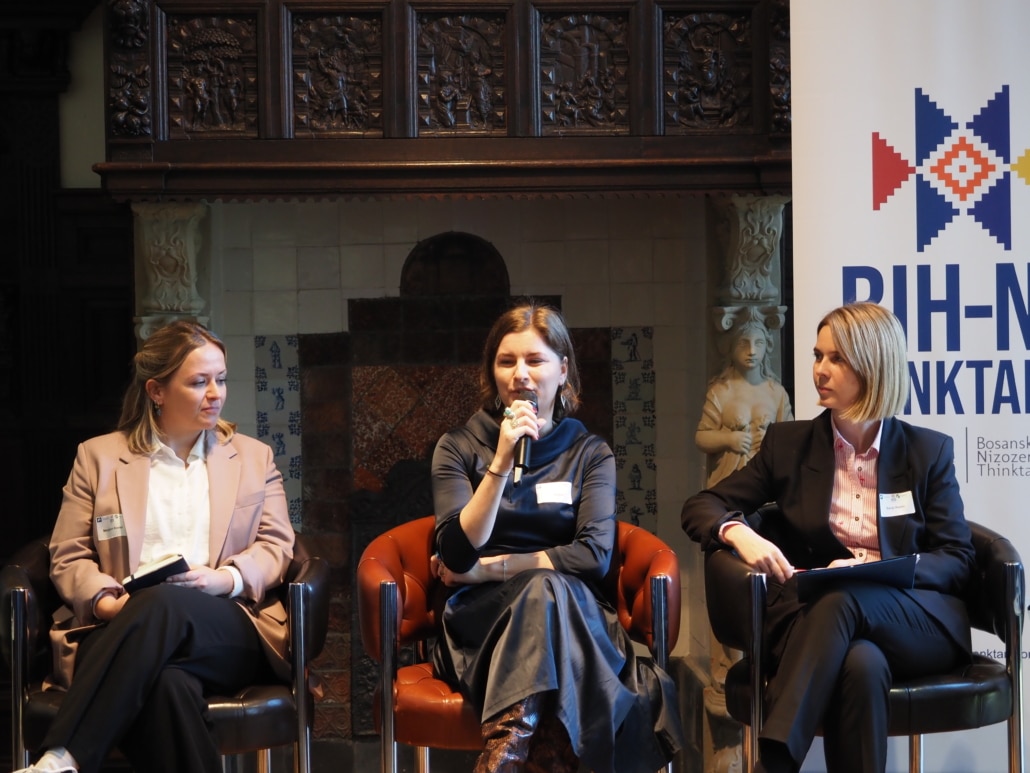
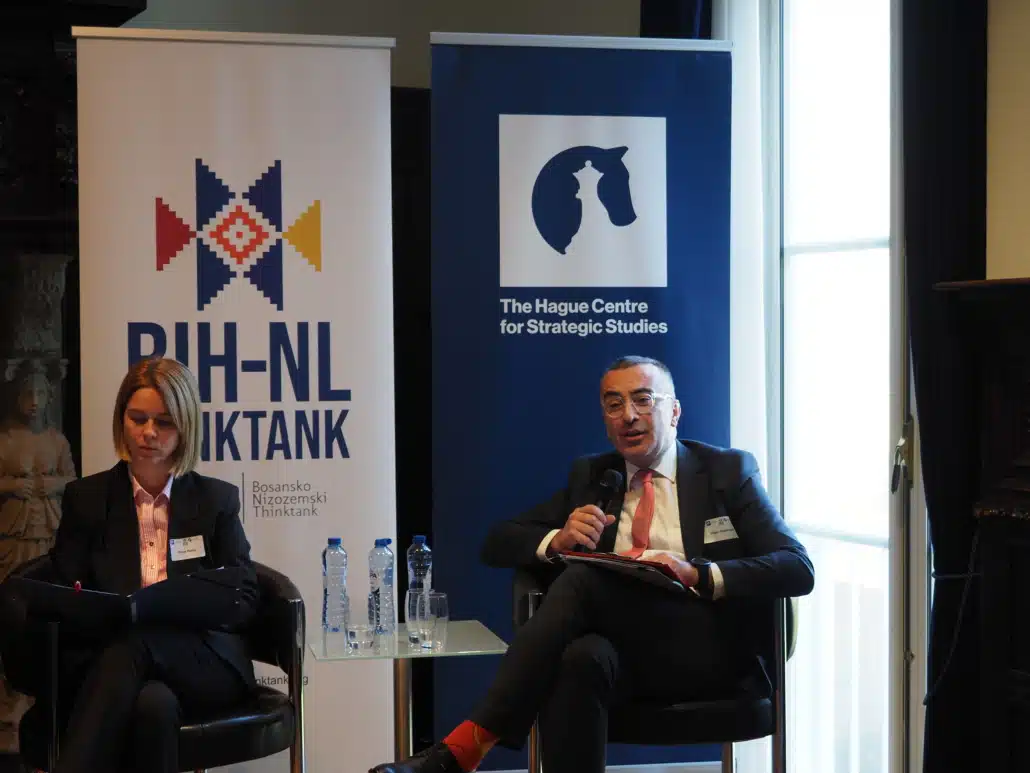
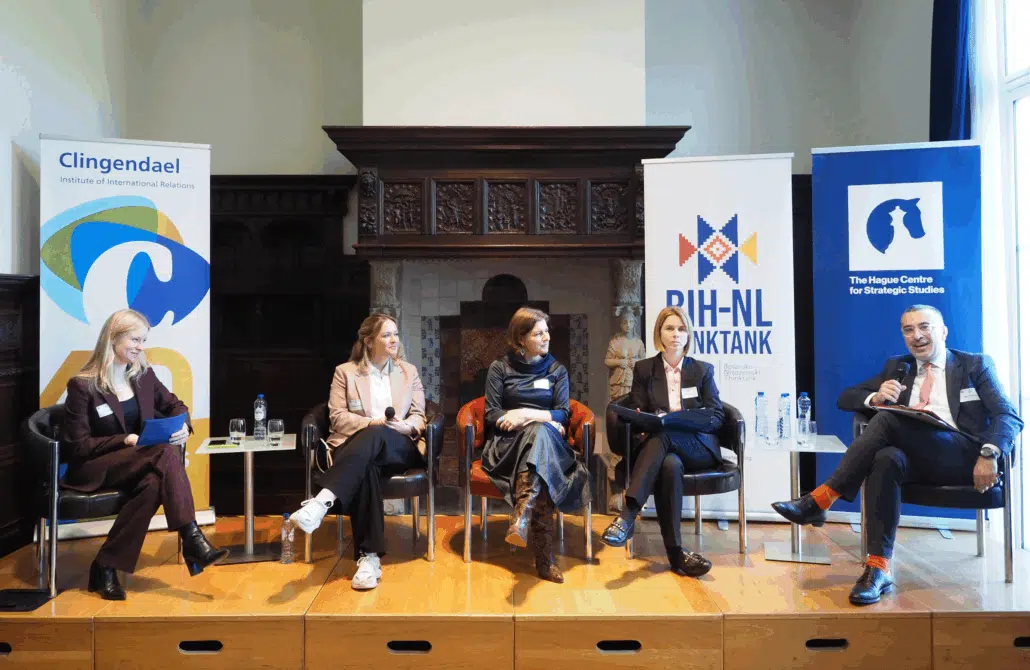
Six concluding reflections
Ambassador of the Netherlands to Bosnia and Herzegovina, H.E. Henk van den Dool concluded the event with six key observations:
- Dayton: The Dayton Peace Agreement must be understood as an agreement created under urgent conditions. Its aim was to stop the war and its political structures were never meant to be permanent.
- The Constitution: Bosnia and Herzegovina’s complex constitutional architecture was intended as temporary. Meaningful EU accession will require renewed discussions on constitutional reform.
- Politics: The political system rewards ethnic division rather than issue-based governance. Everyday concerns such as healthcare, infrastructure, and air quality are crowded out by nationalist rhetoric.
- Institutions: Strong, independent institutions are essential for democracy. While some state-level institutions remain resilient, others are under pressure and must be protected from partisan and ethnic capture.
- Citizens: Bosnia’s population is shrinking rapidly, especially among youth. Restoring trust in elections, revising voter lists, fighting disinformation, and safeguarding media freedom are crucial steps to reverse this trend.
- The EU: EU accession must remain merit-based. Past overly optimistic assessments created illusions of lowered standards. Recent reports are more realistic, reaffirming that genuine reforms, not shortcuts, are key to progressing towards membership.
Overall, Bosnia’s future depends on three intertwined efforts: constitutional renewal, stronger and more independent institutions, and the empowerment of citizens and civil society. Thirty years after Dayton, the peace it created endures, but the democratic transformation it was meant to enable remains unfinished.
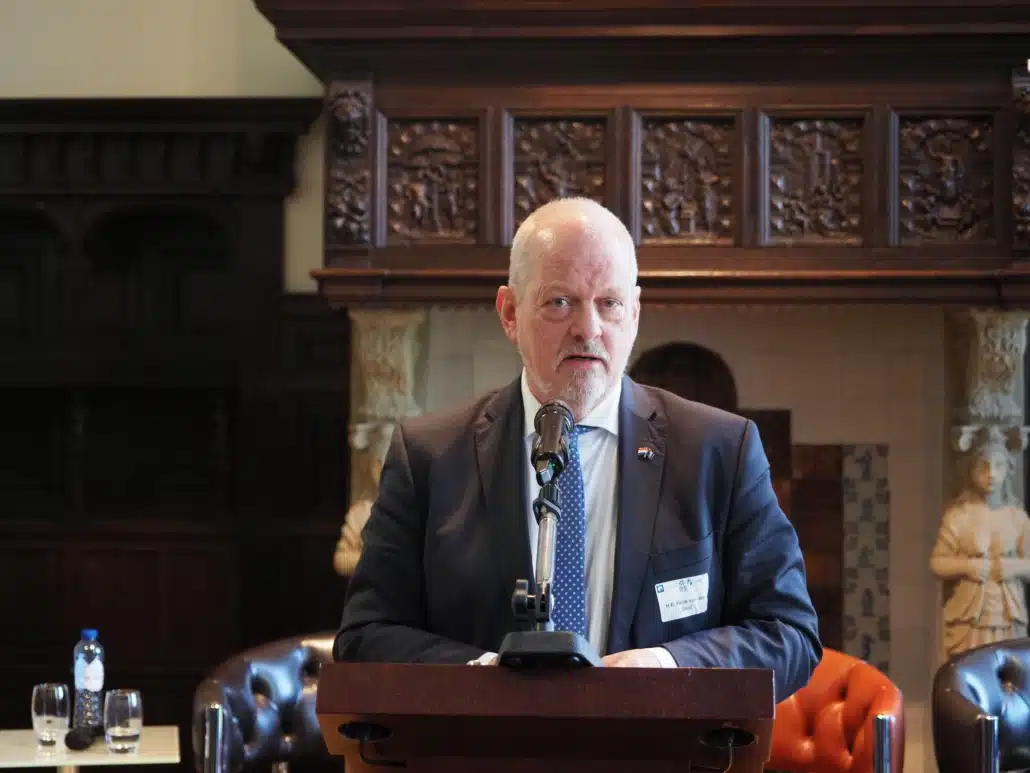
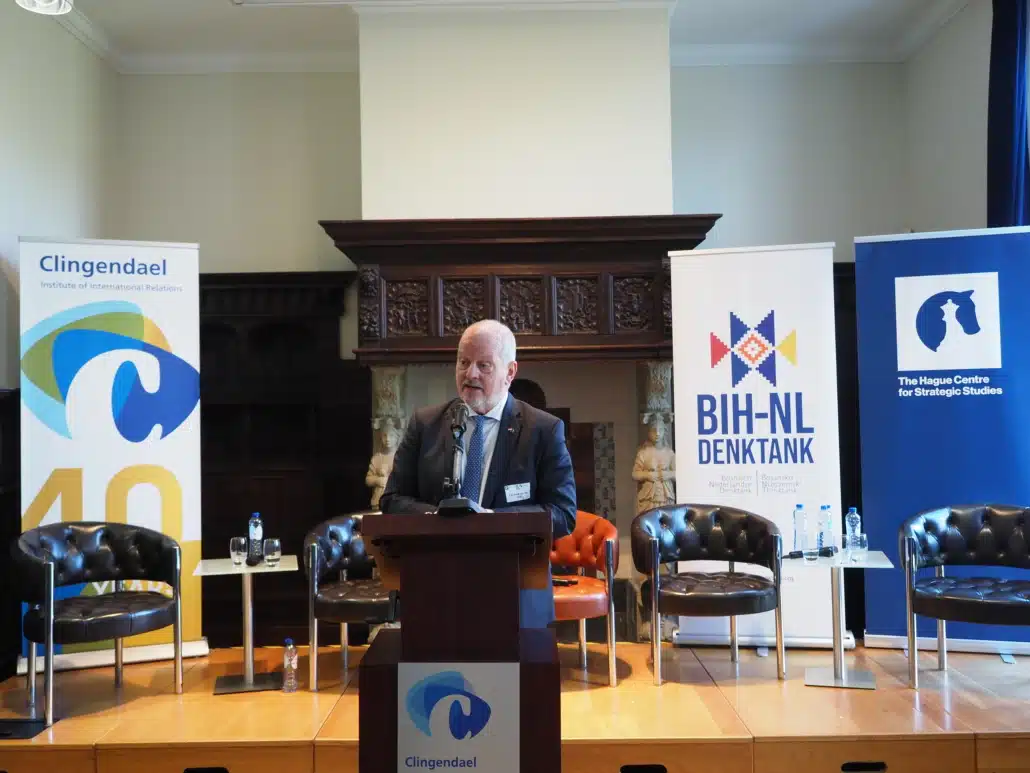
Re-watch the Livestream:




